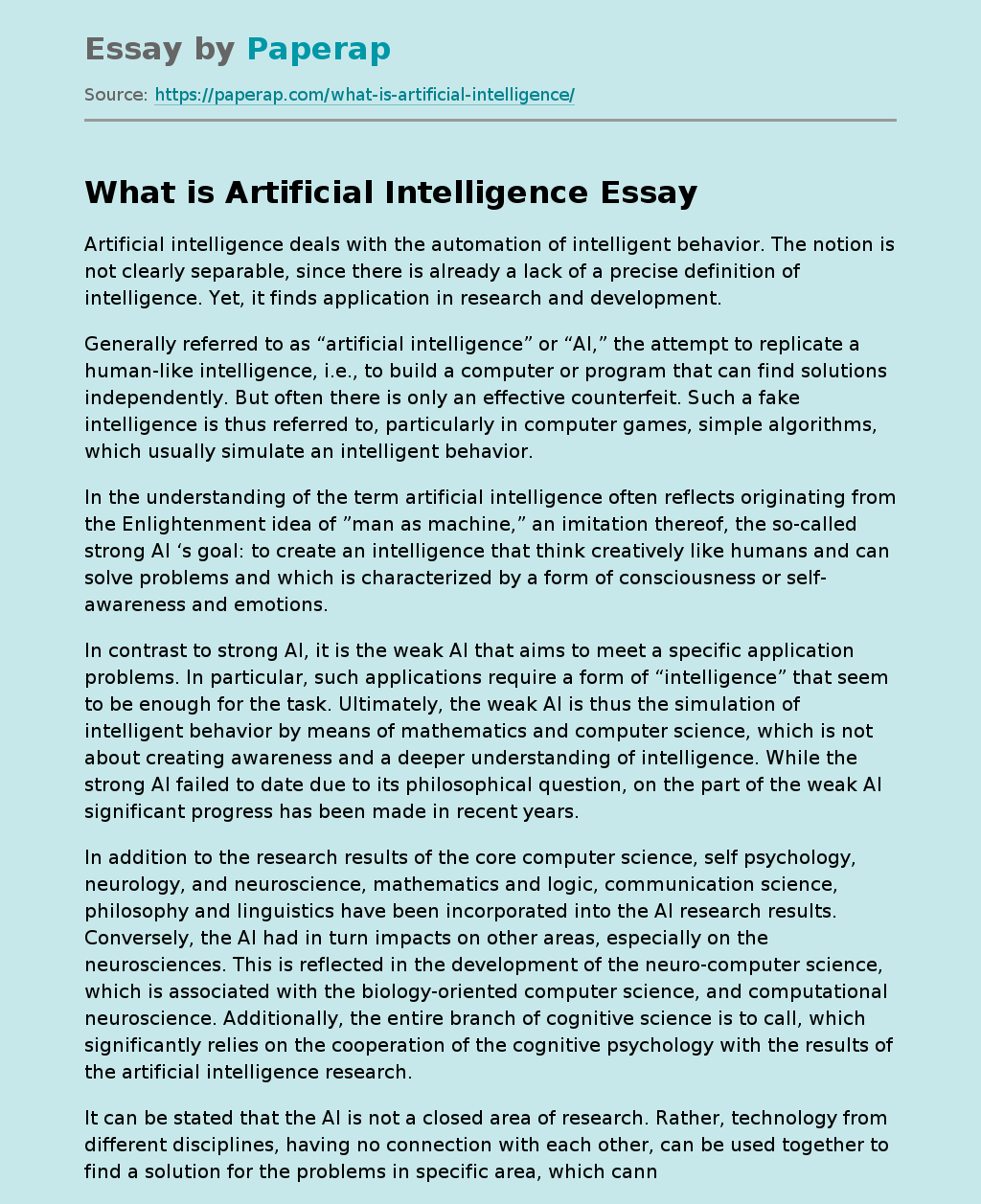What is Artificial Intelligence
Artificial intelligence deals with the automation of intelligent behavior. The notion is not clearly separable, since there is already a lack of a precise definition of intelligence. Yet, it finds application in research and development.
Generally referred to as “artificial intelligence” or “AI,” the attempt to replicate a human-like intelligence, i.e., to build a computer or program that can find solutions independently. But often there is only an effective counterfeit. Such a fake intelligence is thus referred to, particularly in computer games, simple algorithms, which usually simulate an intelligent behavior.
In the understanding of the term artificial intelligence often reflects originating from the Enlightenment idea of ”man as machine,” an imitation thereof, the so-called strong AI ‘s goal: to create an intelligence that think creatively like humans and can solve problems and which is characterized by a form of consciousness or self-awareness and emotions.
In contrast to strong AI, it is the weak AI that aims to meet a specific application problems.
In particular, such applications require a form of “intelligence” that seem to be enough for the task. Ultimately, the weak AI is thus the simulation of intelligent behavior by means of mathematics and computer science, which is not about creating awareness and a deeper understanding of intelligence. While the strong AI failed to date due to its philosophical question, on the part of the weak AI significant progress has been made in recent years.
In addition to the research results of the core computer science, self psychology, neurology, and neuroscience, mathematics and logic, communication science, philosophy and linguistics have been incorporated into the AI research results.
Conversely, the AI had in turn impacts on other areas, especially on the neurosciences. This is reflected in the development of the neuro-computer science, which is associated with the biology-oriented computer science, and computational neuroscience. Additionally, the entire branch of cognitive science is to call, which significantly relies on the cooperation of the cognitive psychology with the results of the artificial intelligence research.
It can be stated that the AI is not a closed area of research. Rather, technology from different disciplines, having no connection with each other, can be used together to find a solution for the problems in specific area, which cannot be found using standard tools. Thus, the technology designed in the mid-20th Century in the neurophysiology are used in the artificial neural networks.
Knowledge-based systems model is a form of rational intelligence for so-called expert systems. These are able to deliver answers to a question of the user based on formalized knowledge and drawn logical conclusions from it. Typical applications can be found in the diagnosis of disease or finding and removing errors in technical systems.
What is Artificial Intelligence. (2019, Nov 27). Retrieved from https://paperap.com/what-is-artificial-intelligence/

